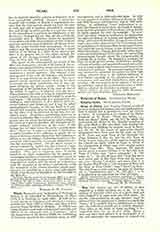

Vice (Lat. vitium, any sort of defect) is here regarded as a habit inclining one to sin. It is the product of repeated sinful acts of a given kind and when formed is in some sense also their cause. Its specific characterization in any instance must be gathered from the opposition it implies to a particular virtue. It is manifest that its employment to designate the individual wicked act is entirely improper. They differ as the habit of doing anything is distinguished from the act of that thing. Hence a man may have vices and yet be at times guilty of no sin, and conversely the commission of isolated sins does not make him vicious. Such guilt as he may have contracted in any case is charged directly to the sinful act, not to the vice. Hence the teaching of St. Thomas Aquinas that, absolutely speaking, the sin surpasses the vice in wickedness. Even though the sin be removed by God the vice, if there was one, may still remain, just as failure to act in any direction does not necessarily and straightway destroy the habit which perchance existed. The habit of sinful indulgence of any sort is to be extirpated by unrelenting vigilance and the performance of contrary acts over a space more or less protracted according as the vice was more or less inveterate. Obviously this applies to vices antagonistic to acquired virtues, for so far as the infused virtues are concerned they can be recovered only, as they were originally obtained, through the gratuitous bounty of God. It is interesting to note that according to St. Thomas after one has been rehabilitated in the state of grace and has received, let us say, the infused virtue of temperance, the vice of intemperance does not continue formally as a habit but only as a sort of disposition and as something which is in process of destruction (in via corru tionis).
JOSEPH F. DELANY

